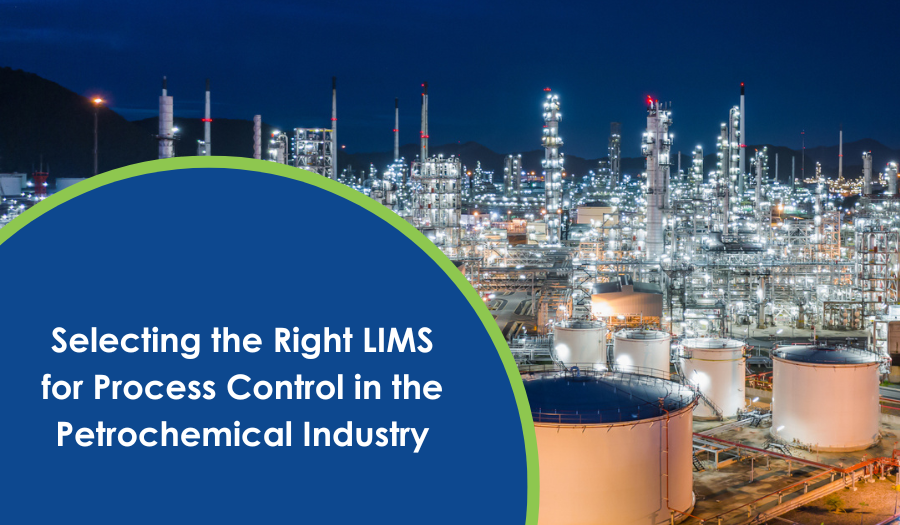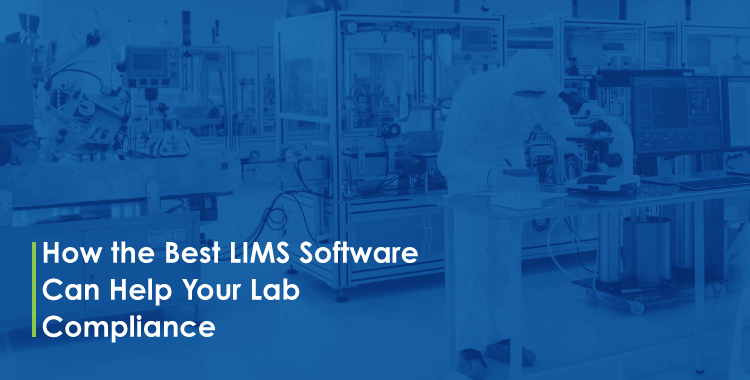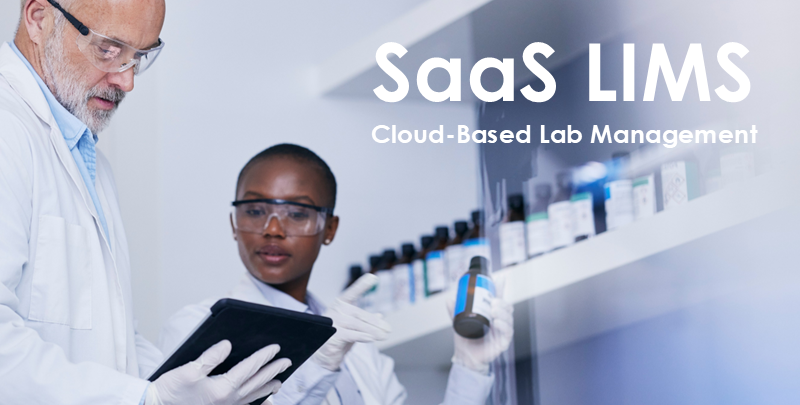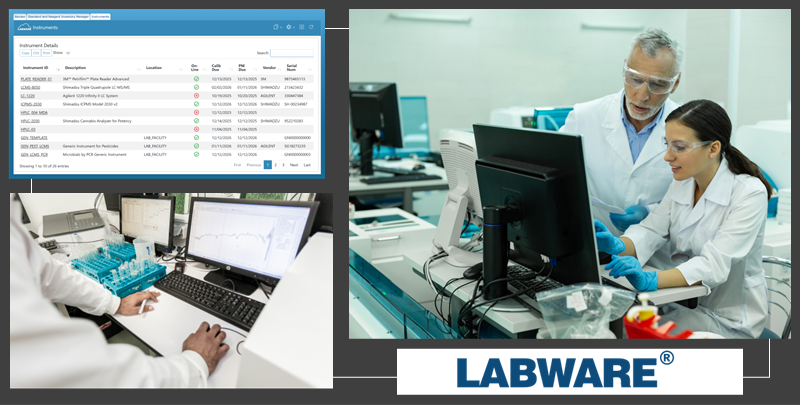Achieving LIMS Software Compliance: A Comprehensive Guide
In the realm of LIMS software compliance, laboratory information management systems (LIMS) play a critical role in ensuring that laboratories adhere...
12 min read
LabWare Updated on September 27, 2023

Implementing robust LIMS (Laboratory Information Management System) is crucial for maintaining efficiency and accuracy in laboratory operations in the ever-evolving petrochemical industry. To ensure competitiveness and compliance, a configurable LIMS designed to meet the needs of the laboratories within the petrochemical industry will provide the necessary support for organizations.
This blog post will delve into various aspects of Petrochemical LIMS Solutions, exploring their significance within the industry and discussing key features to consider when selecting a suitable system. Furthermore, we will examine how Electronic Laboratory Notebooks (ELNs) can complement LIMS platforms by providing additional benefits such as improved data management and streamlined workflows.
Lastly, we'll discuss essential factors like vendor support, training services, scalability potential, and configuration options that must be taken into account when evaluating different LIMS solutions for your organization's unique needs.
Today's petrochemical industry necessitates high performance and productivity, making it imperative to implement automated systems into laboratory operations. One way to achieve this is by integrating automated systems into lab operations. LIMS is a software-based solution that supports and enhances your lab's operations, allowing you to increase efficiency and eliminate paper-based data recording systems.
Automation plays a vital role in modern laboratories, particularly within the petrochemical sector where precise testing and up-to-the-minute monitoring are essential for ensuring product quality and safety. By automating various aspects of laboratory processes through a LIMS, facilities can:
Petrochemical companies stand to gain numerous benefits from adopting an effective LIMS solution:
In addition to these benefits, implementing a LIMS solution also promotes collaboration between different departments in your organization. For example, it enables seamless communication between quality control teams and production units, ensuring that any potential issues are quickly identified and addressed before they escalate into costly problems.
To maximize the advantages of using LIMS in your petrochemical facility, choosing one with comprehensive features tailored specifically for this industry is essential. To ensure you make the best decision, we'll discuss important factors to consider when selecting a LIMS for your petrochemical facility.
A comprehensive understanding of LIMS in the Petrochemical Industry is vital for organizations to maximize their efficiency and accuracy. By exploring key features, companies can ensure they are selecting the right system that meets their needs.
Key Takeaway: A LIMS can enhance efficiency and accuracy in the petrochemical industry by automating various aspects of lab processes. Implementing a LIMS solution promotes collaboration between different departments, improves decision-making, and ensures data integrity while streamlining lab operations. Choosing a comprehensive LIMS with tailored features for the petrochemical industry is essential to maximize its advantages.
Accurate testing and tracking of procedures are paramount for optimal performance in the petrochemical sector. When selecting a LIMS for process control, it's essential to choose one with comprehensive features tailored to your specific needs. These may include real-time data collection, integration with existing equipment, configurable reporting options, and robust quality control measures.
A key feature of any effective petrochemical LIMS solution is its ability to collect data at the actual time the process occurs. This capability allows you to monitor production processes continuously and make informed decisions based on accurate information. Real-time data collection also enables quick identification of potential issues or deviations from established protocols so that corrective actions can be taken promptly.
Your chosen LIMS should seamlessly integrate with your existing laboratory equipment - such as gas chromatographs, mass spectrometers, and other analytical instruments - without requiring extensive modifications or upgrades. These interfaces ensure that you can continue using familiar tools while benefiting from the enhanced capabilities offered by modern LIMS solutions.
In the petrochemical industry, maintaining strict quality control is vital. Your LIMS should offer robust features designed to support this goal. These may include automated sample tracking, audit trails for all data entries and modifications, electronic signatures for approvals, and integration with external quality management systems (QMS). By implementing a comprehensive out-of-the-box industry-specific LIMS solution, you can ensure that your facility adheres to the highest standards in terms of product quality and regulatory compliance.
Taking these factors into account when evaluating potential petrochemical LIMS platforms will help you find a system that meets your unique needs while maximizing efficiency across all aspects of laboratory operations. This ultimately translates into improved productivity, cost savings, and enhanced competitiveness within the rapidly evolving oil and gas sector.
It is essential for any Petrochemical LIMS to have real-time data collection capabilities, integration with existing laboratory equipment, customizable reporting options and quality control measures.
With LabWare LIMS providing continuous process monitoring functionality and batch-oriented processing capabilities, organizations can now achieve optimal levels of efficiency in their petrochemical processes.
Key Takeaway: When choosing a LIMS for petrochemical process control, it's important to select one with real-time data collection capabilities, seamless integration with existing laboratory equipment, configurable reporting options, and robust quality control measures. By implementing such features, you can ensure that your facility adheres to the highest standards in terms of product quality and regulatory compliance while maximizing efficiency across all aspects of laboratory operations.
In the petrochemical sector, having a tight handle on production procedures is essential for ensuring excellent results and product excellence. LabWare LIMS is a powerful yet easy-to-use laboratory information management system designed specifically to meet these needs. With advanced features such as continuous process monitoring and batch-oriented processing capabilities, LabWare enables you to monitor your facility's operations closely.
Monitoring processes in real-time allows you to quickly identify potential issues before they escalate into more significant problems. LabWare LIMS offers continuous process monitoring functionality that collects data from various sources within your lab, including instruments and sensors. This data can be used to generate alerts or trigger automated actions based on predefined criteria, helping you maintain consistent quality standards throughout your operation.
Real-time data visualization tools provided by LabWare enable users to easily track key performance indicators (KPIs) and make informed decisions about adjustments needed in their processes. These
visualizations can also be shared with stakeholders across the organization, fostering collaboration and promoting transparency in decision-making.
Petrochemical facilities often operate using batch-oriented processes where raw materials are transformed into finished products through multiple stages of chemical reactions or physical changes. Managing these complex workflows requires an efficient way of tracking each step while ensuring compliance with regulatory requirements.
In addition to these core capabilities tailored for petrochemical operations management, LabWare LIMS also offers seamless integration with other systems within your organization - including enterprise resource planning (ERP), customer relationship management (CRM), or manufacturing execution system (MES). By integrating all aspects of your business processes into one centralized platform, you can optimize efficiency across the board while reducing potential bottlenecks caused by disparate systems operating independently.
LabWare LIMS provides a comprehensive solution for petrochemical process control, allowing organizations to streamline their operations and reduce costs. Additionally, utilizing electronic laboratory notebooks can further increase the efficiency of lab processes while also providing improved accuracy and reliability in data collection.
Key Takeaway: LabWare LIMS is a comprehensive solution for petrochemical process control that offers continuous process monitoring and batch-oriented processing capabilities. It simplifies sample management, ensures consistent product quality, supports compliance with industry standards and integrates seamlessly with other systems within your organization to optimize efficiency across the board.
In the petrochemical industry, efficient lab operations management is crucial for maintaining optimal performance. One valuable tool that can greatly enhance your lab's productivity and accuracy is an electronic laboratory notebook (ELN) which is a digital alternative to traditional paper notebooks, offering increased flexibility and efficiency through computer or mobile device entry methods.
Making the shift from paper to an ELN can be made easier with proper planning and help. Here are some steps you can take:
Incorporating an electronic laboratory notebook into your petrochemical lab operations not only streamlines data management and enhances collaboration among team members while ensuring compliance with industry regulations. By integrating this powerful tool alongside a comprehensive LIMS like LabWare's solution, you'll be well-equipped to optimize efficiency in your facility's processes.
Using an ELN can provide an efficient and cost-effective solution for digital recordkeeping while offering greater accuracy and data security. Evaluating vendor support and training services is essential to ensure a successful LIMS implementation; these considerations should not be overlooked.
Key Takeaway: Utilizing an ELN alongside a LIMS can greatly enhance productivity and accuracy in petrochemical lab operations. ELNs offer increased flexibility, data integrity, improved collaboration, faster decision-making, and easier regulatory compliance. Moving from paper-based systems to digital record keeping requires identifying needs, evaluating available options, creating a phased implementation plan, and providing training and support for team members.
Choosing the right LIMS for your petrochemical facility is about selecting the right software and ensuring you have access to adequate vendor support and training services. These services are crucial in helping your team adapt to new systems, troubleshoot issues, and optimize system performance. In this section, we will discuss the importance of vendor support and explore various training options available for LIMS implementation.
A reliable vendor should provide ongoing support throughout the entire lifecycle of your LIMS solution. This service includes assistance during installation, configuration, configuration, maintenance, upgrades, troubleshooting technical issues, and expert advice on best practices. Responsive customer service ensures a smooth transition from manual processes to an automated laboratory management system.
In addition to robust support services offered by vendors like LabWare, it's vital that they also provide comprehensive training programs tailored specifically towards petrochemical labs using their solutions. Such training can be delivered through multiple channels such as onsite workshops or web-based sessions depending on organizational needs and preferences.
In conclusion, evaluating vendor support services should be a top priority when selecting a petrochemical LIMS solution. Responsive customer service ensures that your lab's operations run smoothly without any interruptions due to technical issues or lack of knowledge regarding system functionalities. Additionally, comprehensive training programs tailored specifically towards petrochemical labs will empower your team members to maximize the potential benefits offered by the chosen LIMS - ultimately enhancing overall efficiency and productivity within your organization.
It is essential to thoroughly evaluate vendor support and training services prior to selecting a LIMS solution for your business. Assessing scalability and configuration options can provide further insight into the suitability of each system for your needs.
Key Takeaway: When selecting a petrochemical LIMS solution, evaluating vendor support and training services is important. A reliable vendor should provide ongoing technical assistance, and software updates, and seek user feedback for continuous improvement. Comprehensive training programs tailored specifically towards petrochemical labs will empower team members to maximize the potential benefits of the selected LIMS - ultimately enhancing overall efficiency and productivity within your organization.
Scalability and configuration options are essential when evaluating potential LIMS solutions for your facility. This section will discuss how to evaluate scalability potential and explore various configuration possibilities.
A scalable LIMS solution should accommodate an increase in sample throughput, additional users, or new equipment without compromising performance or functionality. When assessing scalability potential, consider the following:
Beyond scalability, having configuration options available within your LIMS enables you to tailor its features according to specific needs - improving overall efficiency and effectiveness. Here are some key aspects of configuration worth considering during evaluation:
Assessing scalability potential and exploring configuration possibilities are essential steps when selecting a petrochemical LIMS solution. By choosing a system designed with growth in mind, such as LabWare LIMS, you'll be better equipped to adapt and evolve alongside industry advancements while maintaining optimal efficiency throughout your facility's operations.
Key Takeaway: When selecting a LIMS solution for petrochemical labs, scalability, and configuration options are crucial. A scalable LIMS should have a modular design, sufficient data storage capacity, robust user access control, and integration capabilities. configuration possibilities include data entry templates and reporting options to generate configured reports tailored to specific requirements while personalizing user interfaces helps improve usability and adoption rates within organizations.
LabWare LIMS does not limit your organization to one software option. We offer varying levels of solutions, integration and installation, including:
Laboratory Information Management Systems (LIMS) can be utilized across various segments of the chemical industry, including research and development, quality control, manufacturing processes, and regulatory compliance. Key applications include sample management, data analysis and
reporting, instrument integration, workflow automation, and inventory tracking. LabWare offers a comprehensive solution tailored to meet the specific needs of this sector.
A well-designed LIMS like LabWare is designed to support Good Manufacturing Practices (GMP) by ensuring data integrity through audit trails and electronic signatures while maintaining strict access controls. It also facilitates adherence to regulatory standards such as FDA 21 CFR Part 11 for electronic records management.
LIMS provides several benefits from a GMP perspective: it streamlines laboratory workflows; ensures accurate data capture; enforces standard operating procedures; enables real-time monitoring of critical process parameters; supports traceability with robust audit trails; improves overall efficiency through automation; reduces human error potential in manual tasks; enhances decision-making capabilities based on reliable information.
In manufacturing settings, Laboratory Information Management Systems (LIMS) facilitate efficient production processes by automating key aspects such as sample management, quality control testing protocols (execution, validation, reporting, documentation, archiving, retrieval), equipment calibration/maintenance, scheduling/tracking/reporting, raw material/component lot tracking/inventory control/order processing/shipping. A versatile system like LabWare can be customized to meet specific manufacturing requirements.
Implementing a Petrochemical LIMS solution can greatly benefit laboratory operations by automating processes, improving data collection and reporting capabilities, and enhancing quality control measures. Key features to look for include real-time data collection, integration with existing equipment, customizable reporting options, and quality control measures.
LabWare offers comprehensive solutions for the petrochemical industry through continuous process monitoring functionality and batch-oriented processing capabilities. Utilizing electronic laboratory notebooks alongside a LIMS can further enhance record-keeping efficiency.
To learn more about implementing Petrochemical LIMS Solutions in your lab operations, visit LabWare.com.

In the realm of LIMS software compliance, laboratory information management systems (LIMS) play a critical role in ensuring that laboratories adhere...

SaaS LIMS helps laboratories cut costs, maintain compliance, achieve scalability, and streamline inventory management. Delivered through the cloud,...

Quality-focused labs don't just run one application. They rely on instruments, chromatography systems, MES, ERP, QMS, and reporting tools that must...